May 30, 2025
Today’s Classic Quordle Hints & Answers
Welcome, word aficionados, to the brain-teasing universe of Quordle! Mark your calendars; it's May 30, 2025, a day that promises a fresh and novel challenge in the world of word puzzles. Imagine the strategic depths you'll dive into as you tackle not one, not two, but four words all at once. Every word you guess sends ripples across four different grids, demanding your sharp wit and eagle-eyed observation in a true test of linguistic prowess.
Feeling stuck? Don't fret—we're all about strategies here. Begin by targeting those common letters that link words together, and keep an eye out for patterns unfolding across the grids. If you find yourself in a tough spot, a Quordle Solver might just be the lifeline you need. Stay positive and let your vocabulary take flight. Remember, every puzzle is an opportunity to learn and grow, so let's dive in and conquer today's Quordle with finesse!
Hints for Today’s Quordle Classic Puzzle
Word 1 Hints:
- The word has a consonant-vowel-consonant-consonant-vowel pattern.
- This term is a noun that denotes a particular type of leader or ruler.
- It is associated with historical titles used in regions of South Asia.
- This word is often seen in literature and history discussing the governance and hierarchy of pre-colonial states, especially in India.
- Think of the royal titles given to monarchs and regional sovereigns in the Indian subcontinent that hint towards their grandeur and authority, not unlike a king, but more culturally specific.
- The word begins with a consonant, has two vowels in the second and fourth positions, and ends in a consonant.
- This is a noun, typically used to describe the origin or reason behind something.
- It falls under the general category of logic and rationale, often used when explaining events or actions.
- You might use this term when discussing the motivation behind a decision or the underlying factors in a situation.
- When investigating an effect, you might pose a question starting with "why" to determine this five-letter explanation.
- The third word has a pattern of five letters: It begins with a consonant, followed by a vowel, with the remaining three letters being consonants, including a repetition of the last letter.
- This word is an adjective commonly used to describe the extreme absence of color or the presence of all colors absorbed.
- The word is often associated with items related to formality, mourning, and elegance in terms of apparel, and with emptiness or totality in a more abstract sense.
- You might use this word to describe the type of formal attire often worn at galas or the color of a night sky without stars.
- This term can also be figuratively used to describe a type of market dealing with goods or activities that are illegal or outside of official sanction.
- The word has a vowel/consonant/vowel/consonant/vowel pattern.
- This term is a noun, specifically referring to a composition.
- The word is linked to the realm of music and performance.
- It's often used within educational settings where a particular set of skills is being developed.
- This word may make you think of a pianist practicing, focusing on improving a specific skill set through repetition.
Think you’ve cracked it? Or are you still scratching your head? Scroll down for the ultimate reveal—but proceed with caution if you’re still guessing!
Warning: Spoilers Ahead!
This is your final heads-up! If you’re looking for tips or strategies to improve your game but still want to solve the puzzle by yourself, scroll back up now.
Below this section, we reveal today’s answers, so continue at your own risk.
Today’s Quordle Classic Puzzle Answer is…
Ready for the solution? Here’s today’s Quordle answer:
A rajah is a monarch or prince in India, especially in the historical context where it is often used to denote a ruler of a state or a territory. The word is rooted in Sanskrit, emerging from "raj-an," which translates to "king" or "ruler." Commonly, the term appears in discussions of Indian history or literature, referencing the royal legacy of the subcontinent. Players may have struggled with "RAJAH" due to the presence of the less frequently used 'J' and 'H,' as well as the possibility of confusing it with similar-sounding words.
Word #2: CAUSEThe term "cause" refers to a person or thing that gives rise to an action, phenomenon, or condition. Etymologically, it descends from the Latin "causa," meaning "a reason or motive." Usage examples include legal language (a cause of action), activism (fighting for a cause), and science (investigating the cause of an event). Although "CAUSE" is a common word, players of Quordle might find difficulty if they focus on less common starting letters, leading to confusion and consuming valuable attempts.
Word #3: BLACK"BLACK" is an adjective used to describe the darkest color, due to the absence or complete absorption of light. It is frequently used in expressions like "black sheep" for an outcast, "black hole" for regions of space with strong gravitational pull, and "black tie" for a formal dress code. With origins going back to Old English "blæc," the word has Germanic roots. Players might have faced challenges guessing "BLACK" if they were fixated on more common word patterns and the placement of the letter 'L' within the word.
Word #4: ETUDEAn "etude" is a musical composition that is specifically designed as a practice piece to improve the technique or demonstrate the skill of the player. Coming from the French word "étude," meaning "study," these pieces are prolific in classical music training. Famous composers like Chopin have composed etudes that have become staples in piano pedagogy. The challenge with "ETUDE" in Quordle comes from its French origin and less common combination of letters, which may not immediately come to mind for many English speakers.
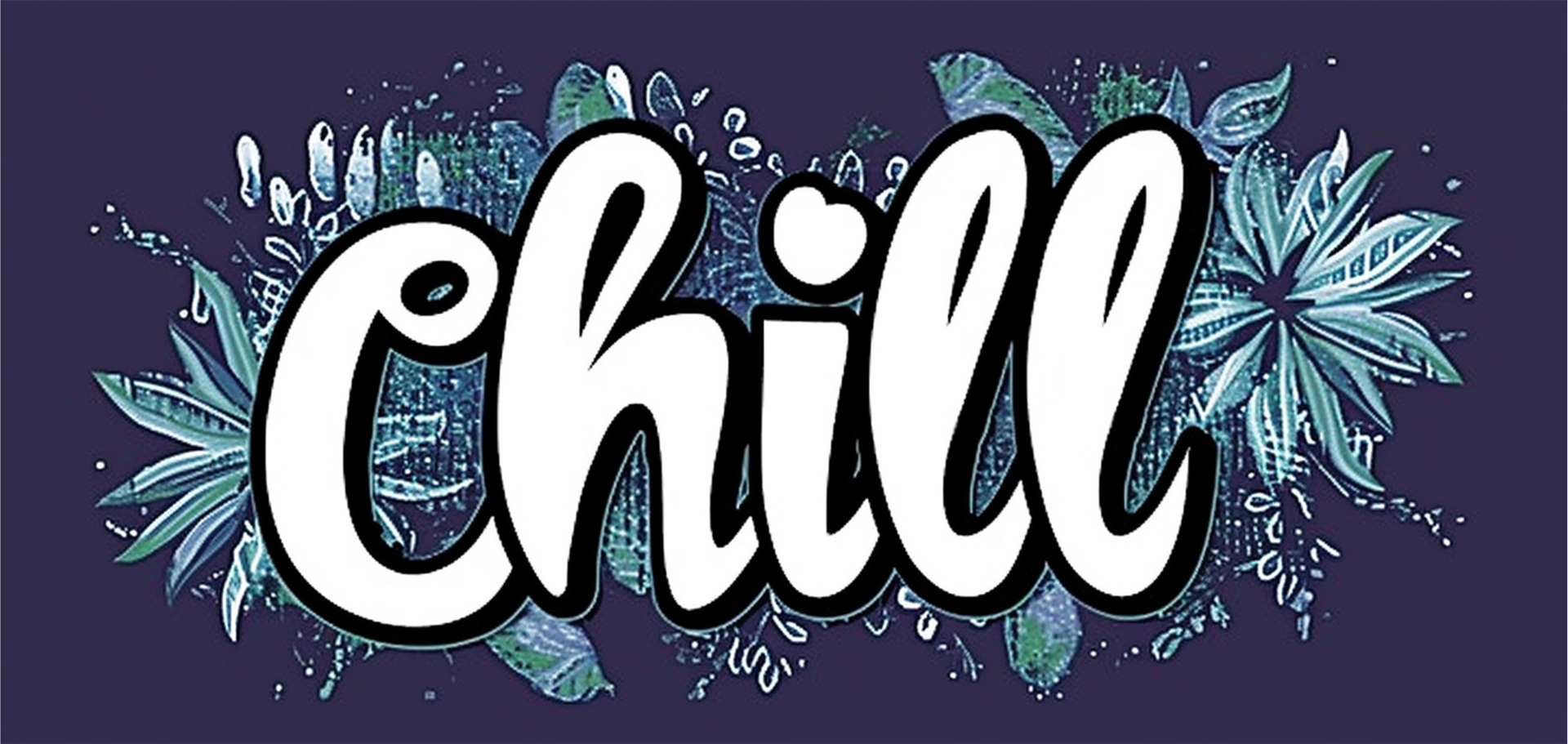
Today’s Chill Quordle Hints & Answers
Take it easy and enjoy a leisurely puzzle challenge on this beautiful May 30th, 2025, with today's Quordle Chill mode, where you've got endless chances to succeed and learn – and if you need a nudge in the right direction, our Quordle Solver is here to offer some friendly tips!
Hints for Today’s Quordle Chill Puzzle
- The word has a pattern of one consonant followed by a vowel, then three alternating consonants and vowels.
- This term is a noun that represents a type of establishment.
- It falls within the category of personal care and beauty services.
- Think of a place you might go to get your hair styled or cut.
- When preparing for a special event, people often visit this establishment to enhance their appearance.
- The structure of the word consists of one consonant followed by a vowel, then a double occurrence of the same consonant, and another vowel at the end.
- This word is a noun and represents a group or collection of a certain type of mobile asset.
- In terms of categories, think maritime or related to groups of vehicles designed for speed.
- You often hear this term used when referring to multiples in a group, especially when discussing naval vessels or groups of ships that are moving together.
- This term is also used metaphorically to describe a group of things sharing a similar rapid characteristic, and it's not just limited to the water.
- The word is composed of five letters with a consonant at the start, followed by a vowel, then a mix of consonants and vowels with the second to last letter being a vowel.
- This word represents a celestial object and is used as a noun.
- It belongs to the astronomical category and typically describes objects which have a transitory appearance in the night sky.
- You might often hear about this term in discussions about space or when a particular event related to these objects is visible from Earth, inspiring wonder and sometimes superstition.
- It shares its name with a brand of freezer pops, and when it lights up the night, it's got a tail that won't wag.
- The word has two vowels and three consonants; the vowels are not at the beginning or the end of the word.
- It is a noun in its most common usage, typically referring to a physical object.
- This term is associated with art and architecture.
- You will often find this in places like public spaces, buildings, or schools, and they often depict a story or a scene.
- Think of a large-scale artwork that is often painted or applied directly on a wall or ceiling.
…
Another Warning: Spoilers Ahead!
Just a heads-up! If you’re working on Quordle Chill and want to solve it yourself, now’s the time to scroll back up. The answers are coming up next, so only keep going if you’re ready to see them!
…
Today’s Quordle Chill Answer is…
Here are the answers to Chill mode.
A salon is a noun referring to a place where hairdressers and beauticians work, offering various services like haircuts, styling, and beauty treatments—commonly known as a hair salon. Culturally, the term also denotes a gathering of people led by an inspiring host, involved in literary, artistic, or philosophical discussions, often in a private residence. Historically, salons originated in France in the 17th century and played a crucial role in the cultural and intellectual development of Europe. Players might have struggled with "salon" due to the common letter combination "SAL," which could be mistaken for other prefixes, and the less frequently used "ON" ending.
FLEET:The word fleet functions as both a noun and a verb. As a noun, it represents a group of ships sailing together, engaged in the same activity, or under the same ownership. As a verb, "to fleet" means to move or pass quickly. In usage, one might refer to a "fleet of ships" or say "time fleets by." The etymological roots of "fleet" can be traced back to the Old English word "fleotan," meaning to float or to swim. Players might have found "fleet" challenging due to its double "E" combination, which can be less common and easily confused with other vowel pairs.
COMET:A comet is a noun that describes a celestial object consisting of a nucleus of ice and dust. When near the sun, a comet can exhibit a visible atmosphere or even a tail, both pointing away from the sun. The term comes from the Latin "cometa," which derived from the Greek "kometes," meaning "long-haired," referring to the tail of the comet. Common discussions about comets involve their appearance in the night sky or historical significance, like Halley's Comet. This word could be challenging due to the "C" and "T" possibly suggesting numerous other combinations, and "OME" not being an immediately recognizable pattern.
MURAL:Mural is a noun that defines a large painting or artwork applied directly onto a wall or ceiling, often in a public space. Murals can be executed in many artistic styles and serve as public art or cultural expression. The word evolved from the Latin "murus," meaning wall, and became popular especially for large-scale street and graffiti art. Phrases like "city murals" or "mural artist" are common. "Mural" might pose a difficulty for players who are not familiar with terms associated with art, and also because of the relatively uncommon letter sequence "MUR," contrasting with the more common "MUR" sound as in "murder."
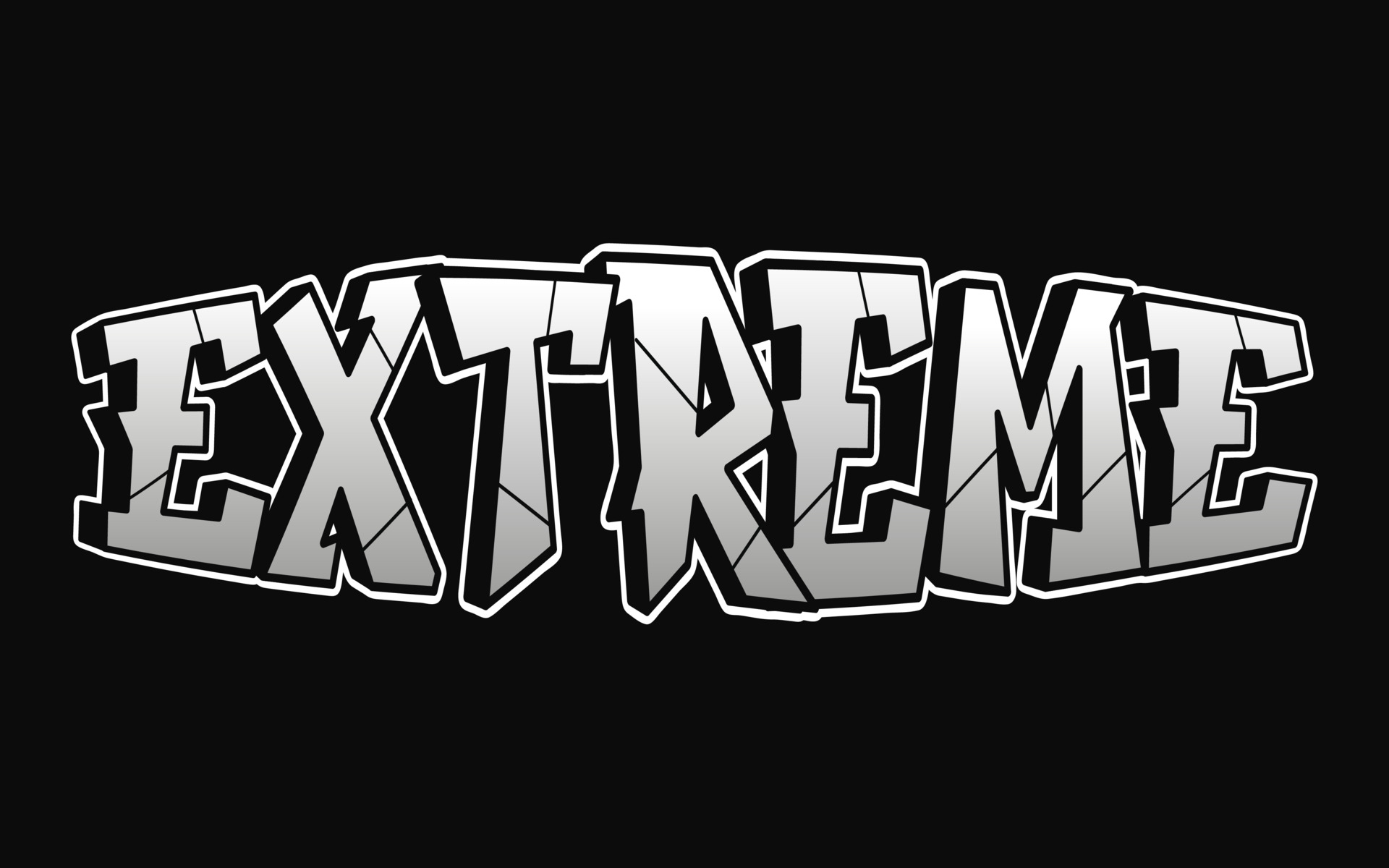
Today’s Extreme Quordle Hints & Answers
Unleash your linguistic prowess with today's Quordle Extreme, May 30, 2025—where only the most astute players prevail and our Quordle Solver could be your secret compass in this labyrinth of letters!
Today’s Quordle Extreme Mode Hints
Word 1 Hints:
- Letter pattern hint: The word has a consonant-vowel-consonant-vowel-consonant structure, where the first and fourth letters are the same.
- Word type hint: It is a verb that often describes an action to drive or force something to move away or not approach.
- Semantic hint: This term is associated with actions against insects, unwanted advances, or any form of intrusion.
- Context hint: You may find yourself doing this when you are approached by salespersons while shopping, or when trying to ward off pesky mosquitoes during a summer evening.
- Strategic hint: If you had a magnet with similar poles facing each other, you might use this word to describe the force causing them to push apart from one another.
- This word consists of two vowels and three consonants; the vowels are found at the second and fourth positions within the five-letter structure.
- It's an adjective that describes an incomplete or deficient condition or status.
- It is often used when discussing goals, expectations, or requirements that have not been achieved or satisfied.
- You might use this term when referring to expectations that were set for a project or event that has failed to reach completion or fulfilment.
- If you had an arrangement or a list of tasks to accomplish and you end up falling short, you would describe your objectives as this word, which starts with an 'UN-' prefix, indicating a negative or opposite state.
- The word follows a consonant-vowel-consonant-vowel-consonant pattern.
- This is an adjective often used to describe something magnificent in size or quality.
- The term is frequently associated with categories such as hotels, occasions, or landscapes that are impressive or large in scale.
- You might use this word when referring to a sumptuously sophisticated event or the physical size of an object when you wish to emphasize its majesty or importance.
- A word you might choose to illustrate the awe-inspiring and imposing presence of a mountain range or a luxuriously arranged ballroom.
- The word follows the pattern of consonant, vowel, consonant, consonant, consonant.
- It is a verb that often describes an action of observation or attention.
- This term is frequently used in the context of keeping an eye on something or someone.
- You might do this action to a pot of boiling water, a person of interest, or an interesting event to ensure everything is as it should be.
- Think of a job position responsible for security or supervision, where the main task is to keep an area or situation under close observation.
…
Last Warning: Spoilers Ahead!
Heads up! If you’re playing Quordle Extreme and still want to figure it out on your own, stop scrolling now. The answers are just below, so only keep going if you’re ready to see them!
…
Today’s Quordle Extreme Answer is…
Ready for the solution? Here’s today’s Quordle answer:
REPEL is a verb that means to drive or force back something or to ward off an attack. It is commonly used to describe pushing away or rejecting something physically, emotionally, or metaphorically, such as "repelling insects" with a spray or "repelling an attack" during a conflict. The etymology of "repel" is traced back to the Latin word "repellere," which means "to drive back." This word may challenge players due to the double "p," which can be tricky to guess if common letters are not easily deduced from prior guesses.
UNMET:In the adjective UNMET, the prefix "un-" signifies "not," combined with the past participle "met," creates a word meaning not fulfilled or not achieved, as in unmet needs or expectations. A common usage example would be a company discussing "unmet market demands." This word's components have Old English roots, "un-" being a prefix indicating negation, and "met," linked to "metan," referring to coming across or encountering. Players might find "UNMET" difficult because the negative prefix can lead one to think of a greater variety of negative words, and the word structure itself is not common.
GRAND:The adjective GRAND defines something impressive in size, appearance, or manner, typically indicating magnificence or high rank. Examples include describing a large building as a "grand mansion" or an important event as a "grand ceremony." Deriving from the Old French "grand," which in turn comes from Latin "grandis" meaning "big" or "great," this word has deep historical roots signifying greatness or majesty. "GRAND" might puzzle players because it is a common word that might be overlooked in favor of more complex or less frequently used terminology.
WATCH:WATCH is a versatile word, primarily a verb that means to observe or look at someone or something attentively, as in to "watch a movie" or "watch over the children." As a noun, it also refers to a small timepiece worn on the wrist. It comes from Old English "wæccan," meaning "to keep watch" or "be awake." The similarity in structure to other common English words like "catch" or "patch" might make "WATCH" a challenging guess for its common root but uncommon usage in the mind during game play.
Quordle Answer History
Curious about previous puzzles? Here’s a look back at some recent answers for reference or nostalgia:
Quordle Classic Answers
| Date | Puzzle # | Words |
|---|---|---|
| May 29, 2025 | #1221 | ●●●●● CRIER ●●●●● DRAPE ●●●●● STRUT ●●●●● NEIGH |
| May 28, 2025 | #1220 | ●●●●● HELLO ●●●●● BEADY ●●●●● VIGIL ●●●●● PURER |
| May 27, 2025 | #1219 | ●●●●● TWEET ●●●●● RANGE ●●●●● POPPY ●●●●● RADAR |
| May 26, 2025 | #1218 | ●●●●● BLEAT ●●●●● HOWDY ●●●●● ASIDE ●●●●● SCOOP |
| May 25, 2025 | #1217 | ●●●●● HUSKY ●●●●● HEIST ●●●●● FOGGY ●●●●● POLAR |
| May 24, 2025 | #1216 | ●●●●● HUSKY ●●●●● HEIST ●●●●● FOGGY ●●●●● POLAR |
| May 23, 2025 | #1215 | ●●●●● SHIRE ●●●●● GIANT ●●●●● AWAIT ●●●●● CAPER |
| May 22, 2025 | #1214 | ●●●●● CLOSE ●●●●● GLOVE ●●●●● EXCEL |
| May 21, 2025 | #1213 | ●●●●● NOVEL ●●●●● CHOSE ●●●●● DIRTY ●●●●● DONUT |
| May 20, 2025 | #1212 | ●●●●● DECOY ●●●●● SHAKE ●●●●● MAPLE ●●●●● PURER |
| May 19, 2025 | #1211 | ●●●●● CLINK |
Quordle Chill Answers
| Date | Puzzle # | Words |
|---|---|---|
| May 29, 2025 | #1221 | ●●●●● STUNT ●●●●● BLINK ●●●●● PLANT ●●●●● BENCH |
| May 28, 2025 | #1220 | ●●●●● STOOD ●●●●● NASTY ●●●●● ASIDE ●●●●● DEVIL |
| May 27, 2025 | #1219 | ●●●●● MONEY ●●●●● LEASH ●●●●● SUPER ●●●●● HABIT |
| May 26, 2025 | #1218 | ●●●●● STING ●●●●● SMACK ●●●●● DECOY ●●●●● DANCE |
| May 25, 2025 | #1217 | ●●●●● SCARE ●●●●● BRIEF ●●●●● TOAST ●●●●● BOSSY |
| May 24, 2025 | #1216 | ●●●●● SCARE ●●●●● BRIEF ●●●●● TOAST ●●●●● BOSSY |
| May 23, 2025 | #1215 | ●●●●● SCOUT ●●●●● CLOSE ●●●●● COURT ●●●●● PILOT |
| May 22, 2025 | #1214 | ●●●●● WHEEL ●●●●● SHIRT ●●●●● REPLY ●●●●● MAJOR |
| May 21, 2025 | #1213 | ●●●●● PASTE ●●●●● OWNER ●●●●● SNOWY ●●●●● CARGO |
| May 20, 2025 | #1212 | ●●●●● DEPTH ●●●●● OUTER ●●●●● WISER ●●●●● RENEW |
Quordle Extreme Answers
| Date | Puzzle # | Words |
|---|---|---|
| May 29, 2025 | #1221 | ●●●●● NAVAL ●●●●● GENRE ●●●●● KNEEL ●●●●● UDDER |
| May 28, 2025 | #1220 | ●●●●● HONEY ●●●●● CRIED ●●●●● SIGHT ●●●●● YEARN |
| May 27, 2025 | #1219 | ●●●●● AMASS ●●●●● CURVE ●●●●● WHOWL ●●●●● MANGO |
| May 26, 2025 | #1218 | ●●●●● MARRY ●●●●● HOUND ●●●●● BACON ●●●●● UNMET |
| May 25, 2025 | #1217 | ●●●●● TAKER ●●●●● SOGGY ●●●●● BISON ●●●●● GOOSE |
| May 24, 2025 | #1216 | ●●●●● TAKER ●●●●● SOGGY ●●●●● BISON ●●●●● GOOSE |
| May 23, 2025 | #1215 | ●●●●● MOWER ●●●●● TRICE ●●●●● CREDO ●●●●● SHEET |
| May 22, 2025 | #1214 | ●●●●● ZESTY ●●●●● SANER ●●●●● ANTIC ●●●●● CHOKE |
| May 21, 2025 | #1213 | ●●●●● SCRUM ●●●●● DOZEN ●●●●● BLOND ●●●●● TESTY |
| May 20, 2025 | #1212 | ●●●●● SWING ●●●●● STUNK ●●●●● SWEEP ●●●●● LURID |

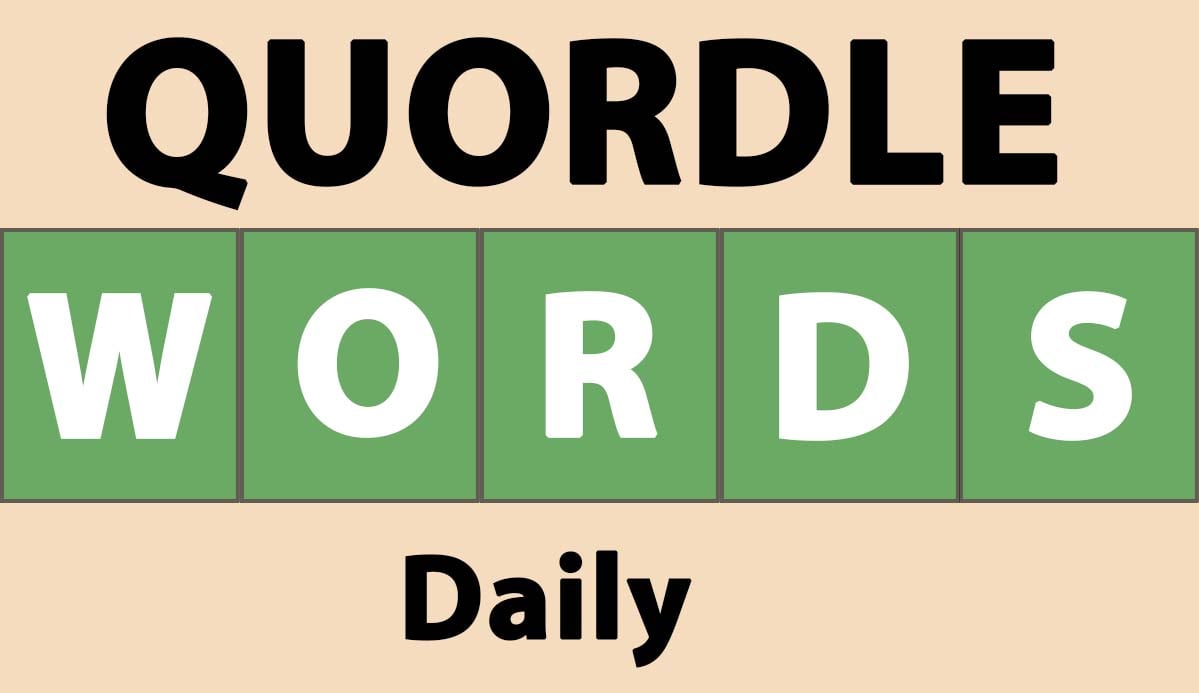
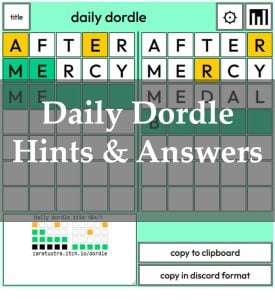
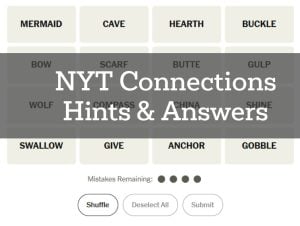
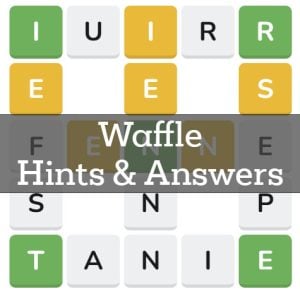
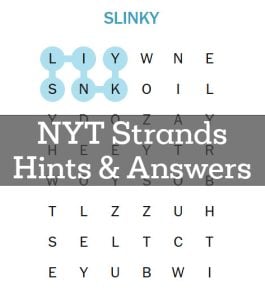
I love the hints! They really help me get into the game. Can’t wait to try today’s puzzles!
This article is so helpful! I always struggle with Quordle, but these tips make it easier. Thanks for sharing!
Wow, this is great! I appreciate the clear warnings about spoilers too. Keep up the good work!
These hints are super helpful! I appreciate the effort you put into making it easier for us!
“Extreme mode” sounds like a blast! Can’t wait to give it a shot with your hints.
I had so much fun with today’s puzzles! The hints were just what I needed.
“Spoilers Ahead” is the best warning ever! Thanks for keeping it exciting!
“Quordle” is my new favorite word game, and your hints make it even better. Thank you!
Great post! I love how you break down the hints for each mode. Keep it up!
Awesome tips! I’m always looking for ways to improve my game. Thanks for sharing!
“Chill mode” is perfect for relaxing while still having fun. Thanks for the guidance!
Thanks for the hints! They really help me get started without giving too much away.
I love these Quordle hints! They make the game so much more fun. Can’t wait to try today’s puzzles!